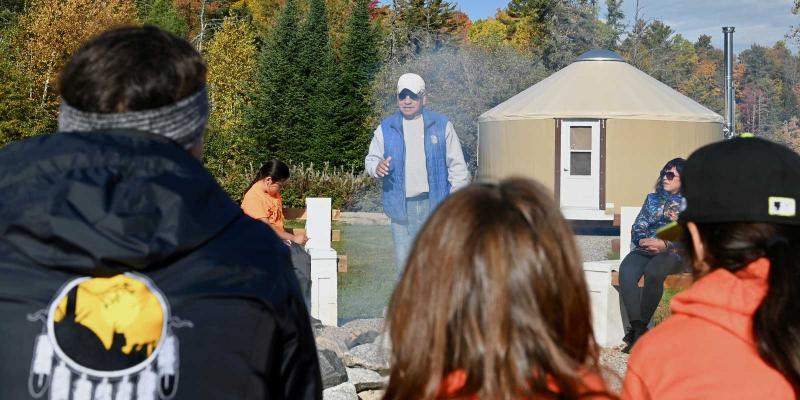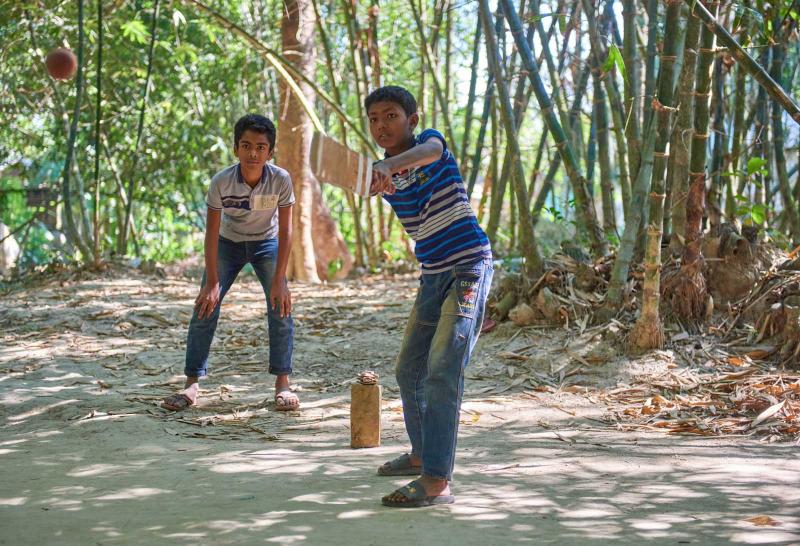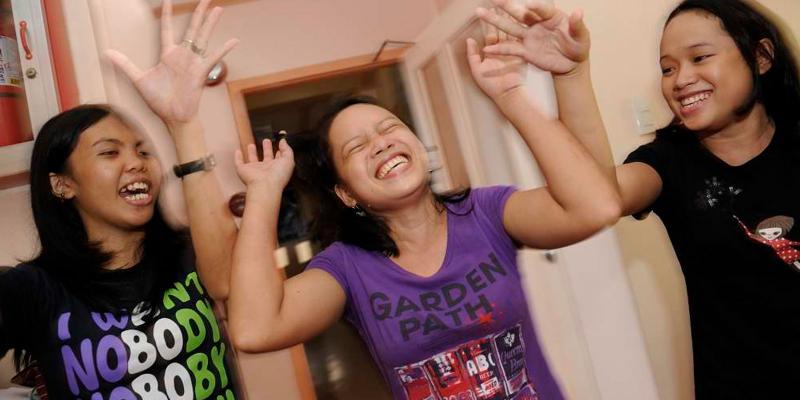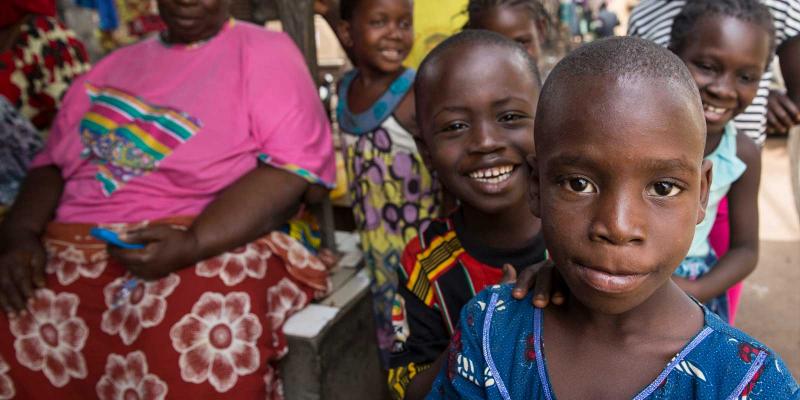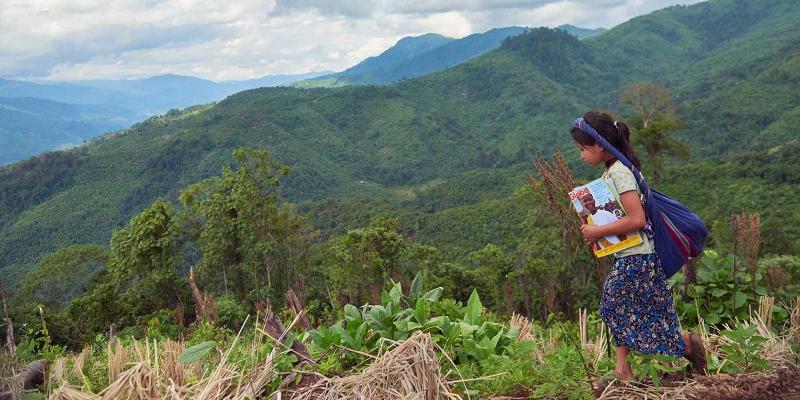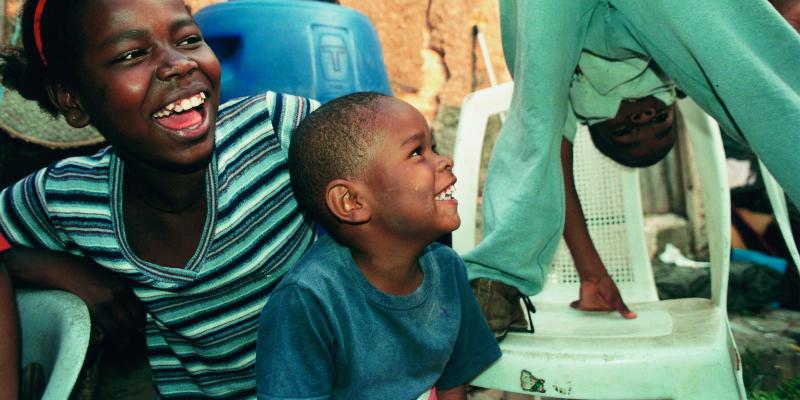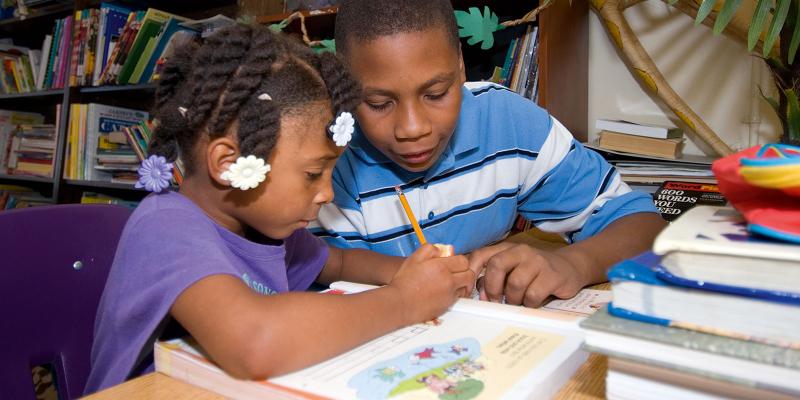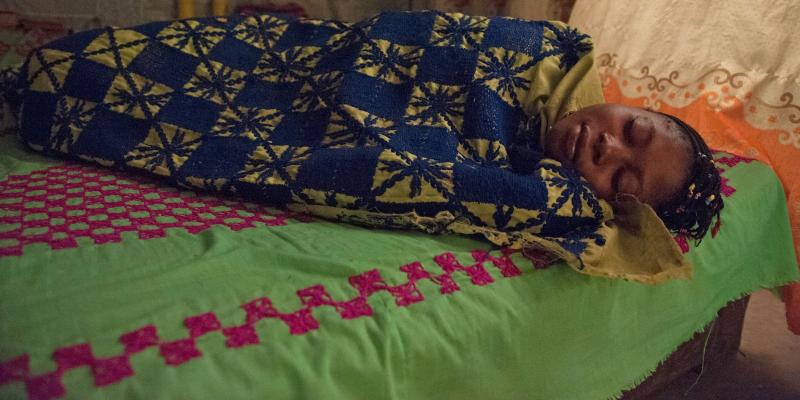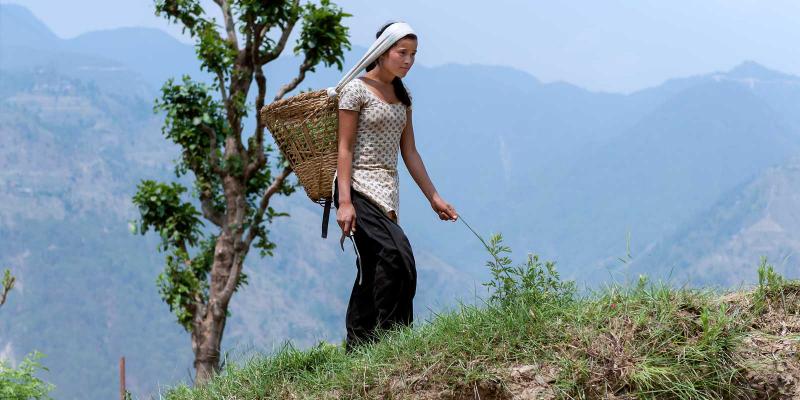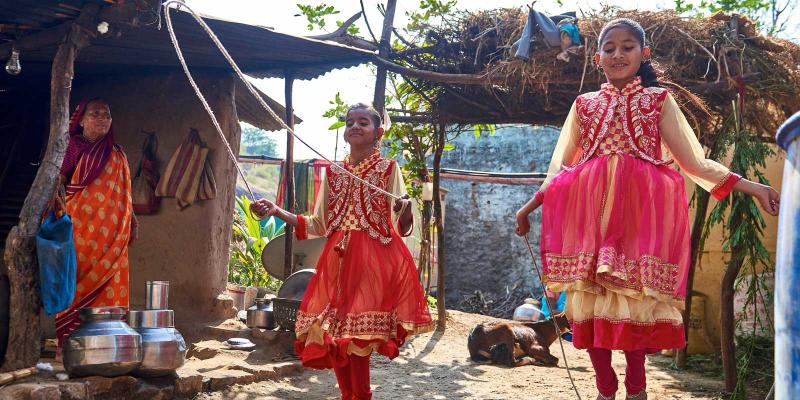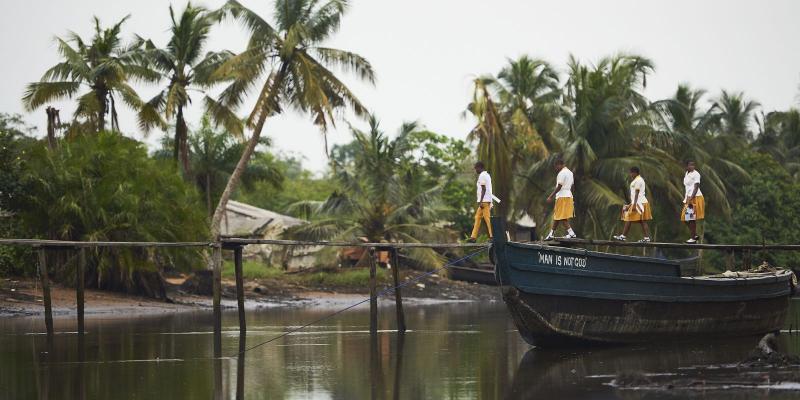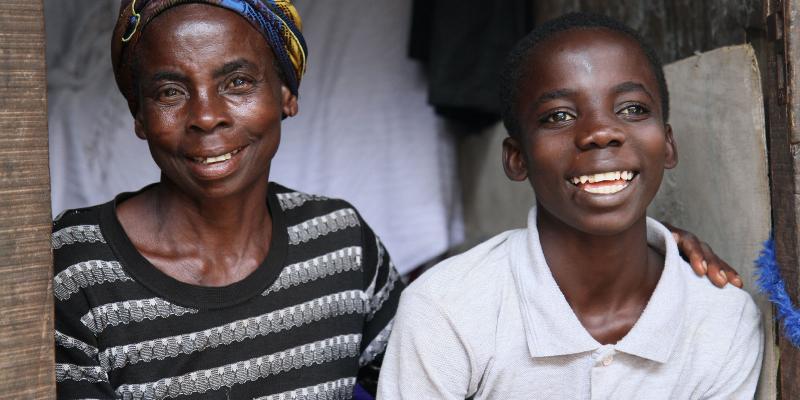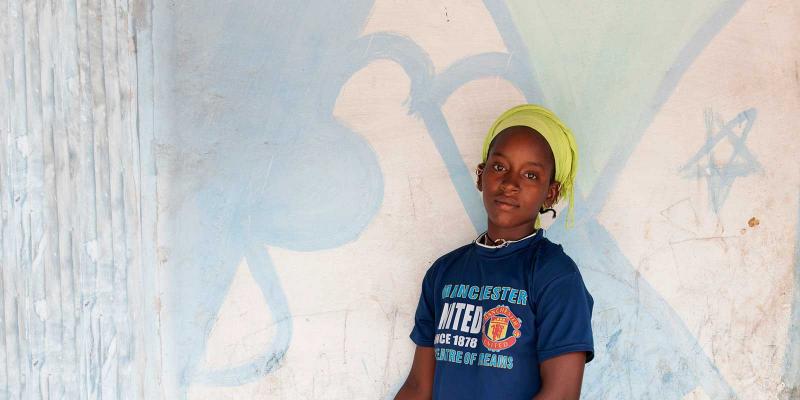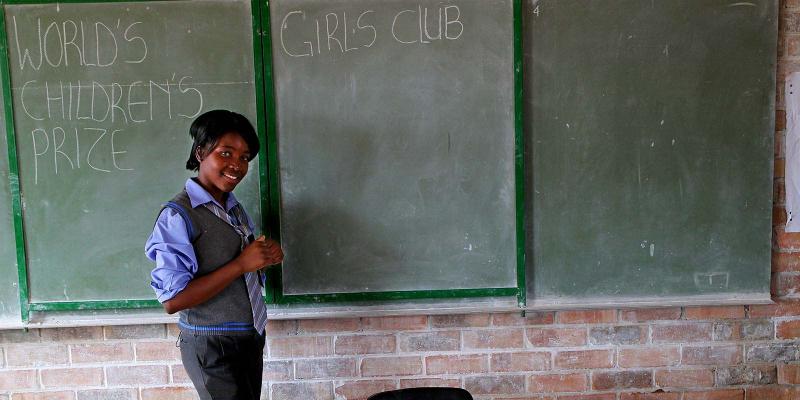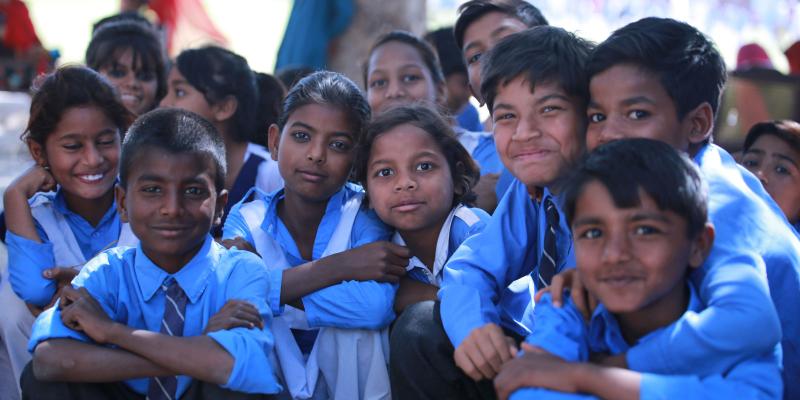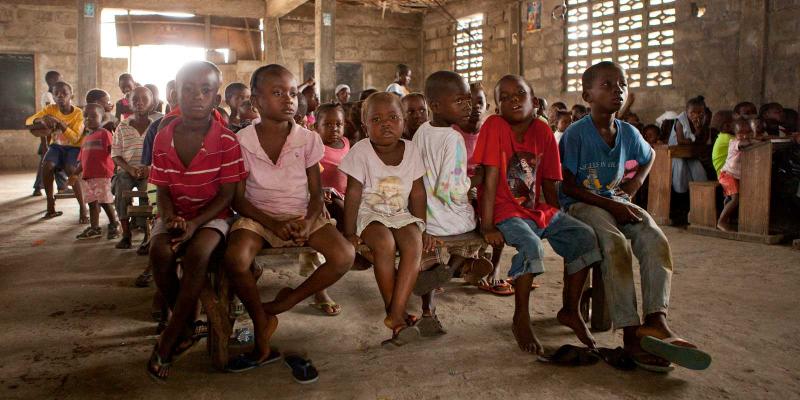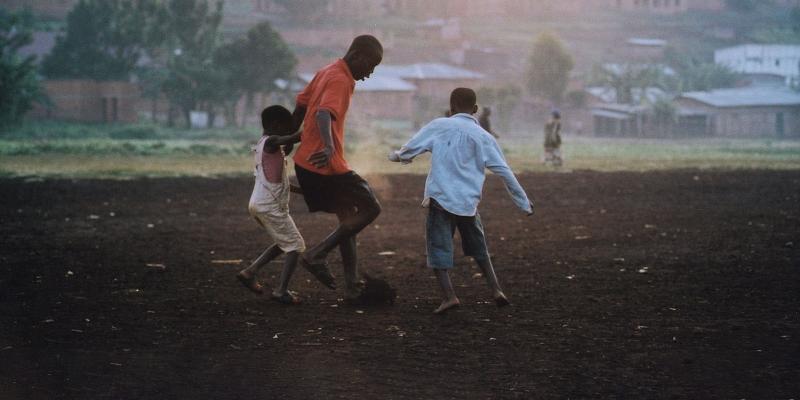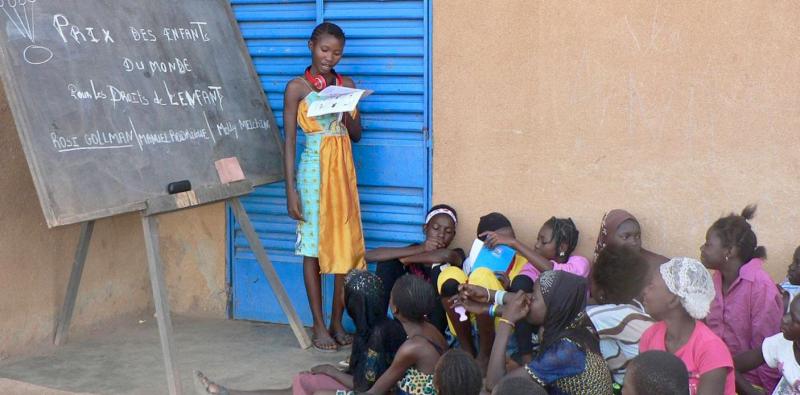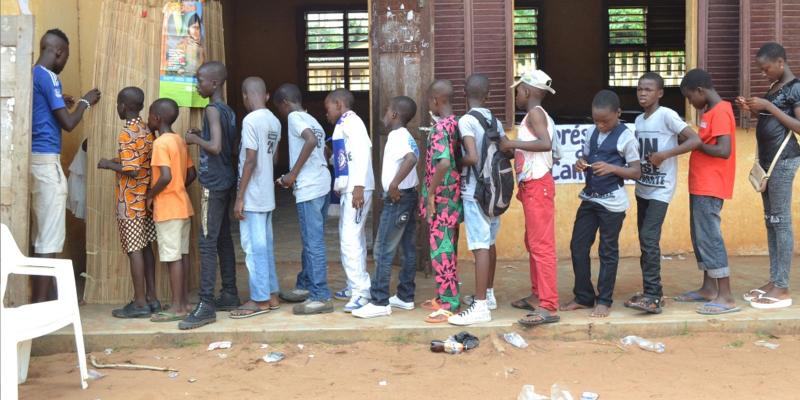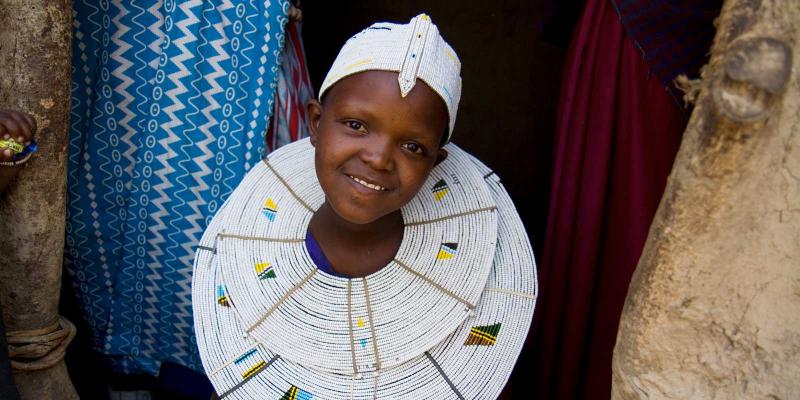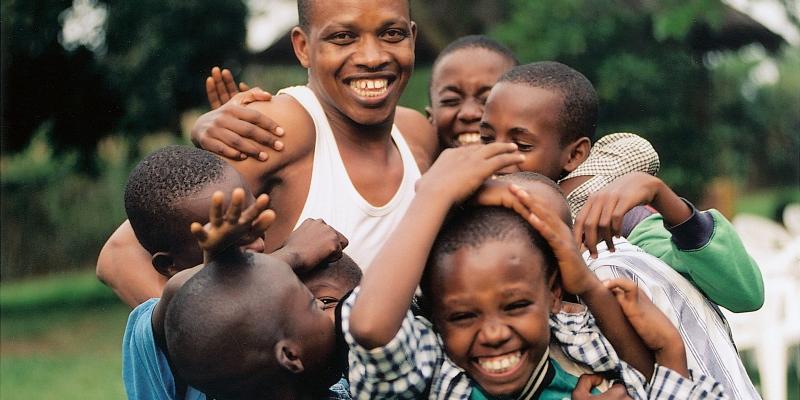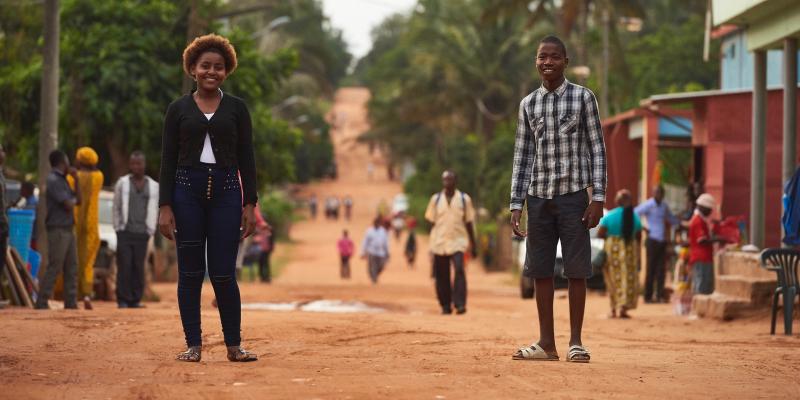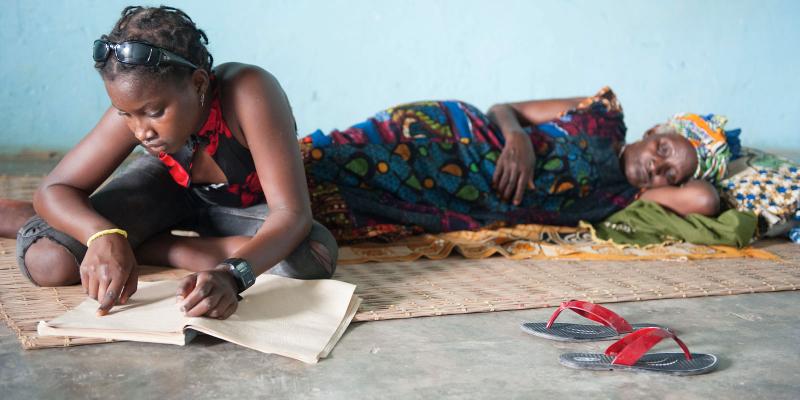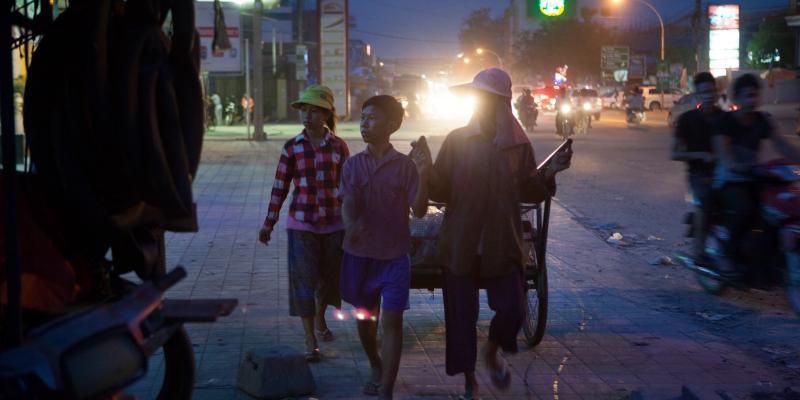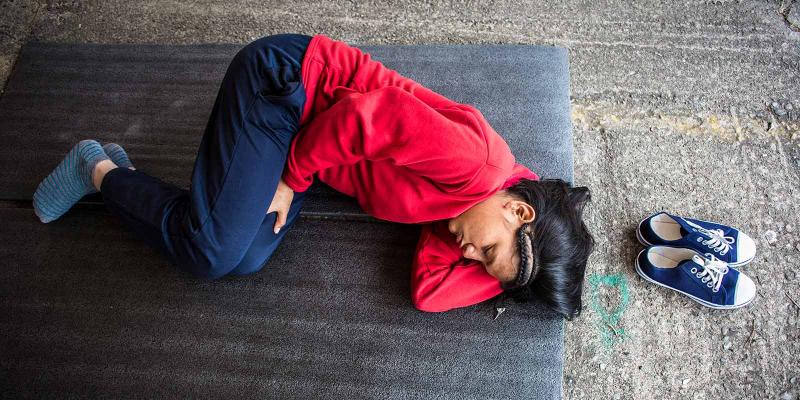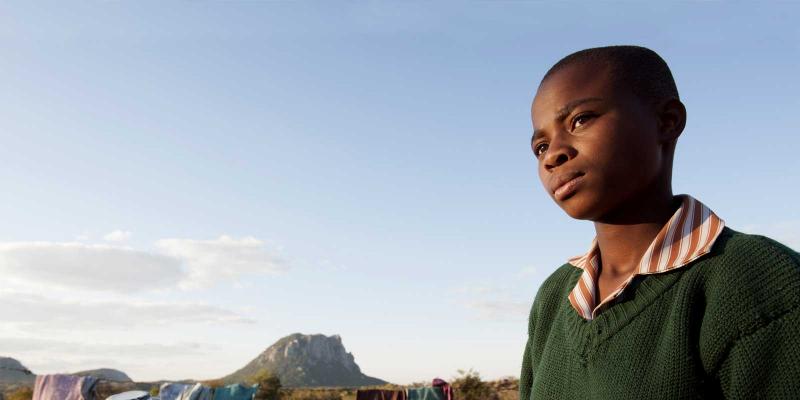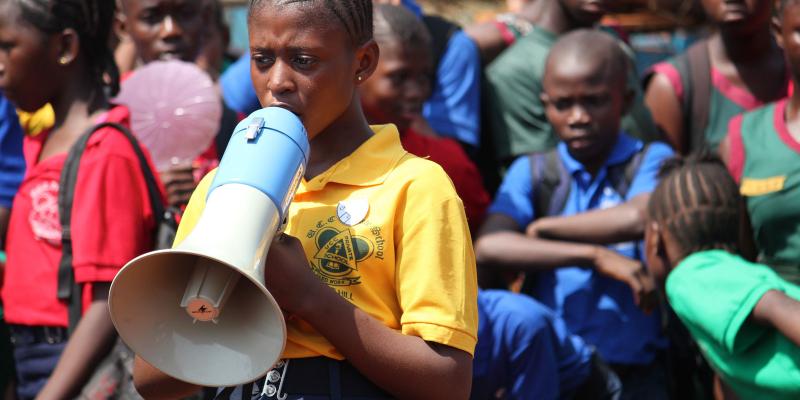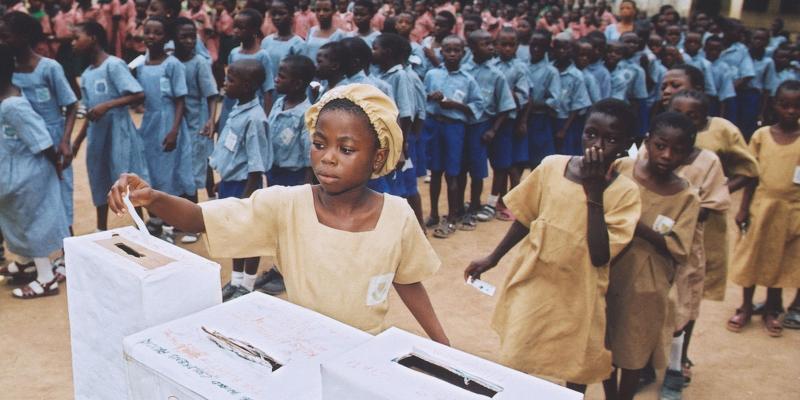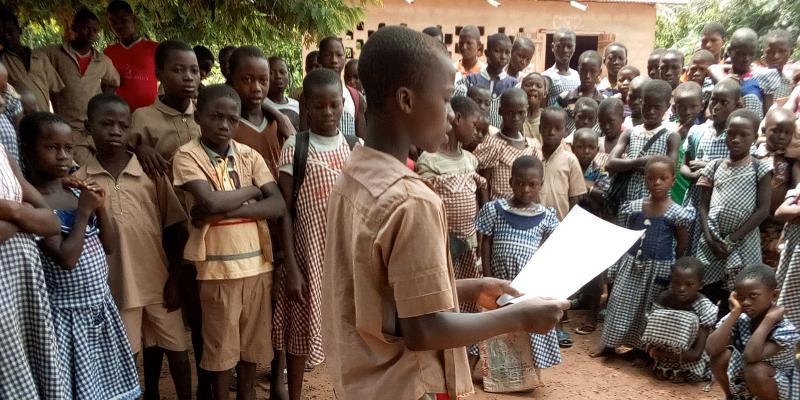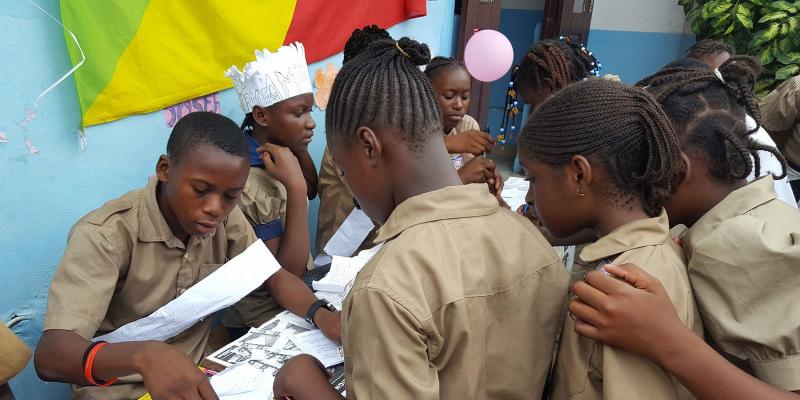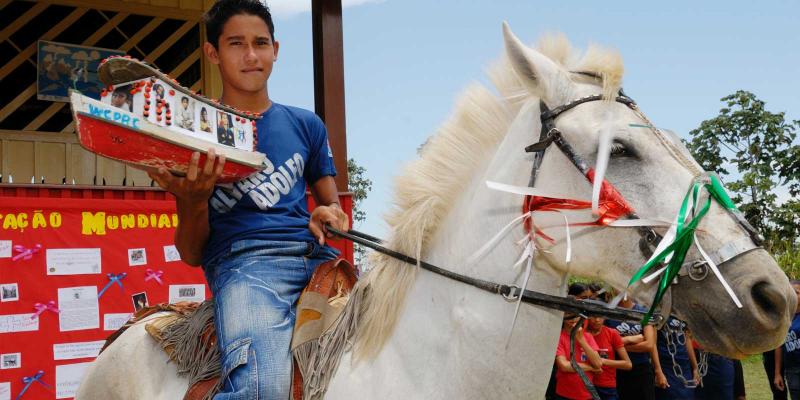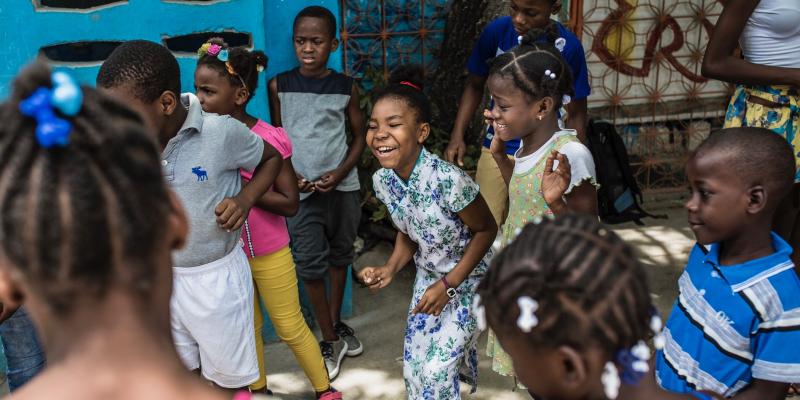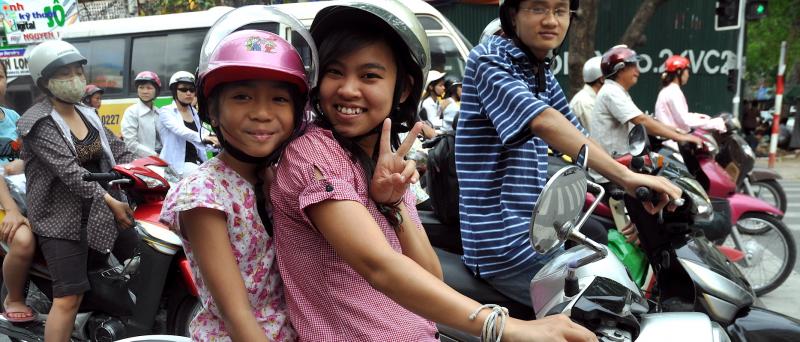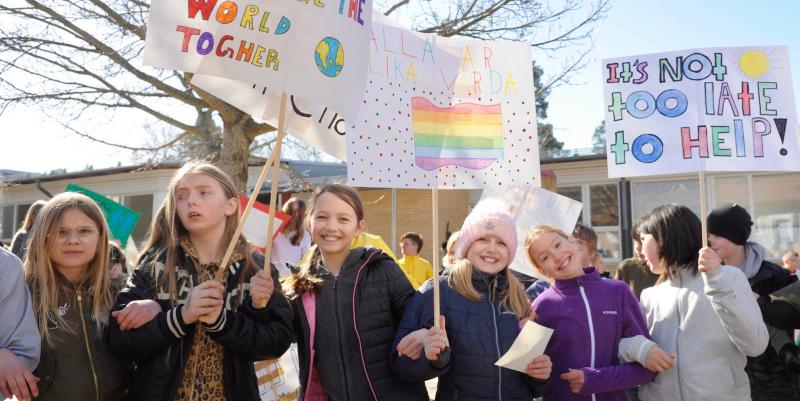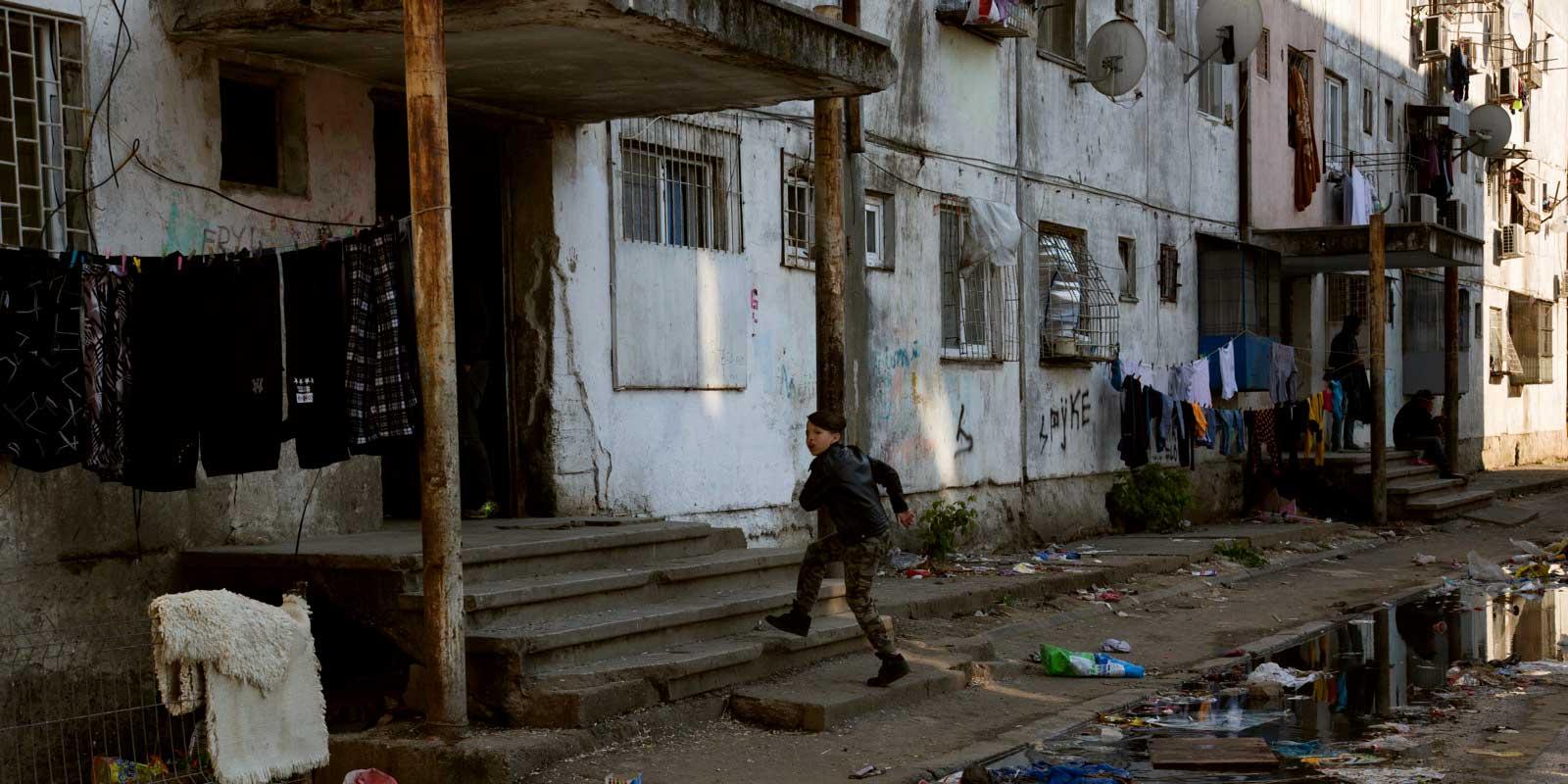
How are Romania's children?
Romania has ratified (pledged to follow) the UN Convention on the Rights of the Child. This means that Romania must respect the rights of the child and listen to what children have to say. Are the rights of the child respected in Romania?
3.5 million children
19.5 million people live in Romania. Nearly 3.6 million are children, and 940,000 of the children are under five years old.Name and nationality
From the day you are born you have the right to have a name and to be registered as a citizen in your country. 179,000 children are born every year in Romania. Some children, especially poor children and children from minorities such as the Roma, are never registered. There is no documented proof that they exist, which could make it difficult for them to get health care and education.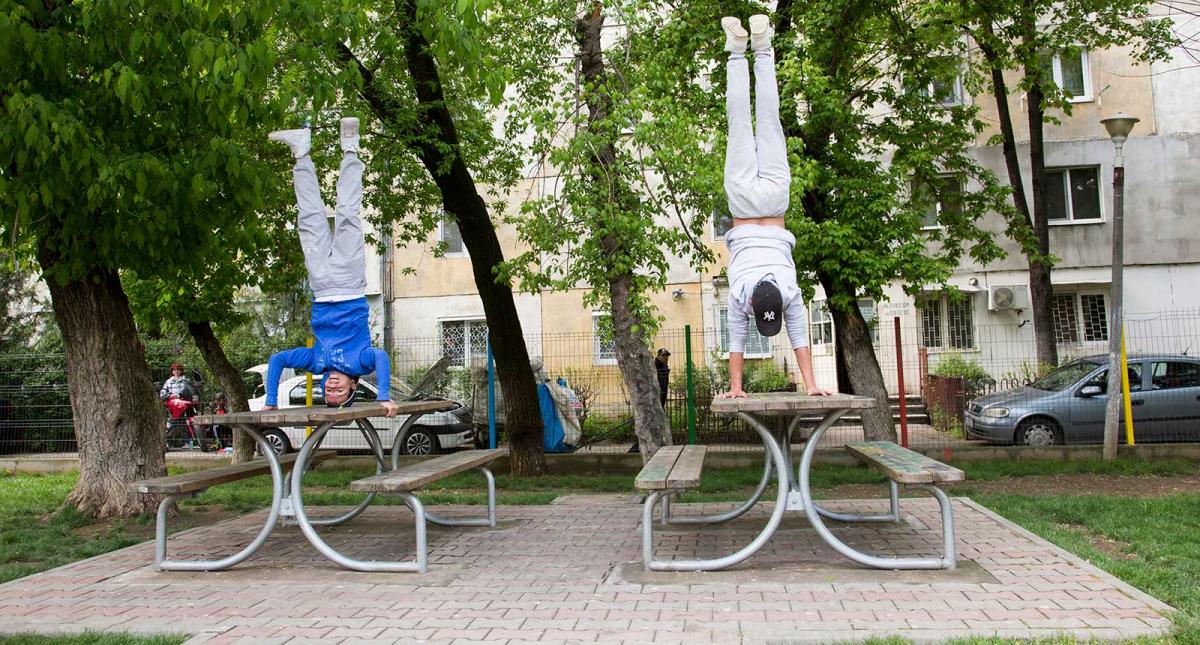
Teenagers do acrobatics in the park of the Ferentari neighbourhood in Bucharest, Romania. © Joanna Pelirocha/WCPF
Survive and grow
You have the right to life. Romania must do all it can to allow children to survive and develop. 0,14 percent of children in Romania die before they turn 5. The number of children who die under the age of 5 /(1 281 in 2021) has decreased over the past years but is still high compared to other countries in the EU.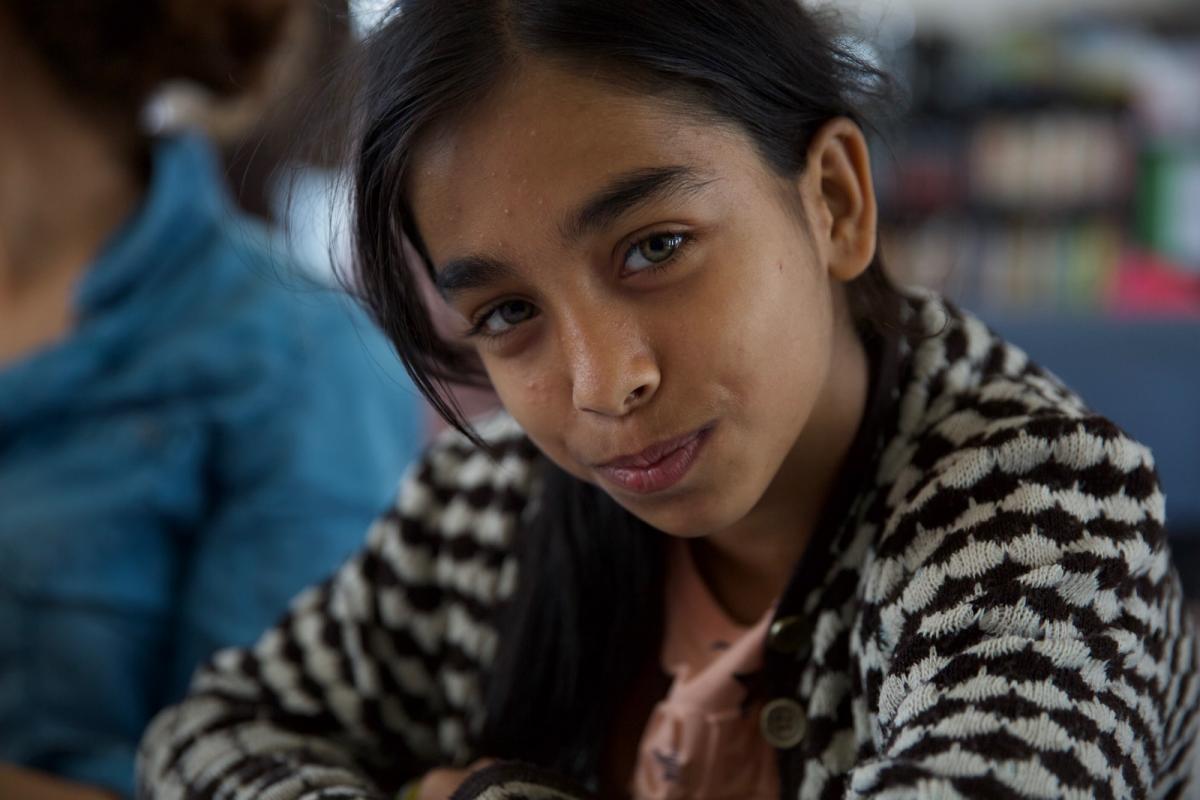
Rebecca, 12, from Romania belongs to the Roma minority that is often discriminated against. Learn about the history of the Roma. © Kim Naylor/WCPF
Health and well-being
You have the right to food, clean water, medical care, and to privacy when consulting an adult about any health problem. Nearly all children in Romania have access to at least basic drinking water. 8 out of 10 children have access to adequate sanitation facilities.A home, clothing, food and security
You have the right to a decent living standard, a good home, food, clothing, and security. In Romania, nearly 4 out of 10 children live in poverty or are at risk of poverty and social exclusion. Children in rural areas are at a higher risk than those living in urban areas. To live in poverty does not just mean that one has little money. Poverty can mean that a child lacks all or any basic needs such as shelter, education, nutrition, water or health services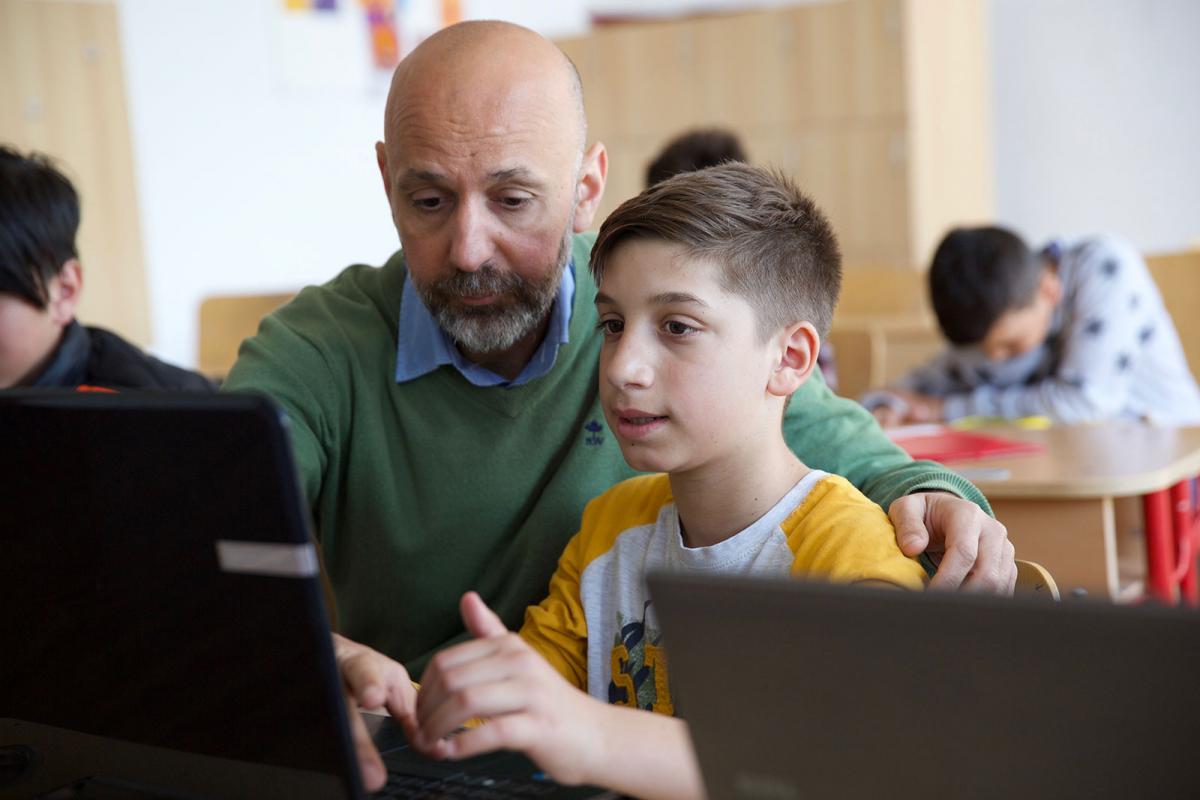
WCP Child Rights Hero Valeriu Nicolae helps Dario, 12, with his homework. More about Valeriu © Kim Naylor/WCPF
Education
You have the right to go to school. Primary and secondary schools should be free for everyone. More than 9 out of 10 children in Romania go to school. However, children who have not been registered at birth may not show up in the statistics.Violence
You have the right to protection against all forms of violence, including neglect, maltreatment and abuse. Some children in Romania experience violence at home and in their communities. Some are also exposed to hate crimes and sexual abuse on the Internet. Teenage girls are often more vulnerable to violence, especially from a partner. There is no publicly available government data on child marriage in Romania, but NGOs have estimated that circa 6 percent of girls and young women aged 15–19 get married annually. In 2004 Romania banned all forms of corporal punishment – one of only 63 countries around the world that has taken this step.Child labour
An estimated 1 percent of children in Romania have to work. However, growing numbers of unaccompanied children, coupled with a demand for cheap unprotected labor, suggest that trafficking of children is escalating. You have the right to be protected against both economic exploitation and work that is hazardous to your health or which prevents you from going to school. All work is prohibited for children under 12. Some children around the world are forced into the worst forms of child labour, such as being debt slaves, child soldiers or used for commercial sexual exploitation.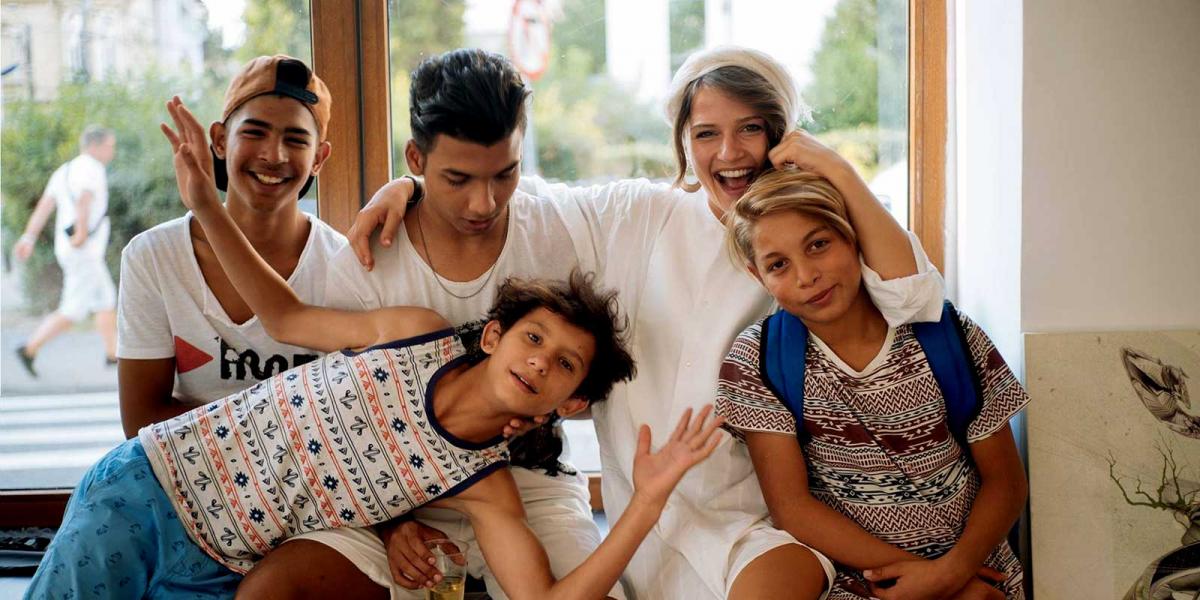
The young members of the Playhood theatre group in Bucharest speak out about their rights through drama. Meet the young actors and activists in Playhood © Playhood
Your voice must be heard
You have the right to say what you think about any issue that affects you. The adults should listen to the child’s opinion before they make decisions, which must always be made in the best interest of the child! Today, many children make their voices heard online but far from everyone. The digital divide is shrinking faster than before, but less than 1 out of 10 children and young people in low-income countries have internet access compared to 9 out of 10 in high-income countries.Related stories
WORLD'S CHILDRENS PRIZE FOUNDATION
Långgatan 13, 647 30, Mariefred, Sweden
Phone: +46-159-129 00 • info@worldschildrensprize.org
© 2020 World’s Children’s Prize Foundation. All rights reserved. WORLD'S CHILDREN'S PRIZE®, the Foundation's logo, WORLD'S CHILDREN'S PRIZE FOR THE RIGHTS OF THE CHILD®, WORLD'S CHILDREN'S PARLIAMENT®, WORLD'S CHILDREN'S OMBUDSMAN®, WORLD'S CHILDREN'S PRESS CONFERENCE® and YOU ME EQUAL RIGHTS are service marks of the Foundation.


x
x
x

